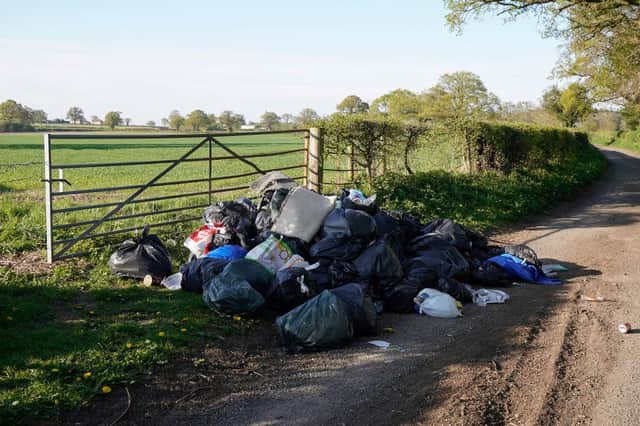Farming comment - Let's take a litter lesson from cowboys


And that was when the seed was sown. I wanted to visit the wide-open prairie land in the American Wild West and see it for myself. So, it was a dozen or so years ago I realised my dream and visited the States of Montana, Idaho and Wyoming and saw for myself where the cattle and the buffalo roam.
It was neither the cattle roaming in the wide-open prairies nor the straight, seemingly unending but undulating gravel roads that took my attention. It was little signposts, every so often, claiming:, “This verge is kept litter free by the XYZ 4 H Club”, or by the local branch of “God Bless America” or any one of hundreds of other local organisations in this rural backwater. Everyone, it seemed, was keen to do their bit to keep the countryside from drowning in the detritus of modern society. The roadside verges were all litter free. It was most impressive, and I thought the idea could be transferred across the Atlantic and help keep our roadside verges clear. I was sure there were enough civic organisations that would look after a section of roadway, removing the empty drinks cans, cardboard fish supper boxes and plastic containers.
Advertisement
Hide AdAdvertisement
Hide AdAt that time, I served on the local Cooncil, but when I floated the idea, the response came winging back pretty swiftly. The convenor of the Cooncil rejected the idea on the grounds that the local authority’s own litter picking team would lose out. In a flat Fife accent, I was told nothing could be done to bring in such a scheme based on civic pride. “It’s jobs ye ken, son, and all the boys would be laid off.”
Despite this rejection, I am pleased to report that some communities do organise “litter picks” along their verges and sea fronts. Equally, individuals with a pride in the area in which they live can be seen out with spiky sticks and sacks into which they put the litter strewn carelessly across their neighbourhood.
It used to be just the old fish and chip wrapping casually tossed over the fence along with the odd empty lemonade bottle. But as future archaeologists will testify, we are now well into the plastic era with non-biodegradable plastic containers of all colours, shapes and sizes despoiling our countryside.
Some years ago, a decision was made by local authorities to charge house builders and property renovators with fly-by-night tendencies for dumping their waste. The result is that many farm gateways down quiet country lanes have become the resting place for a load of rubbish which the farmers and landowners have to clear up, often at a cost to their own pockets.
The litter/fly tipping problem increased last year, with many local authorities having to close down their amenity sites because of Covid, and while these restrictions have now been eased, the NFUS confirms that their members are still being plagued by thoughtless dumpers of rubbish.
That is why the Union is keen that those affected by this anti-social behaviour respond to a current Scottish Government consultation, optimistically labelled Towards a Litter Free Scotland. I like the ambition in the title, but my own observation is that a stricter enforcement of existing laws would go a long way toward solving the problem as there seems to be little energy or enthusiasm in bringing the miscreants to justice.
As I tootled along the open road through what used to be called the Wild West, I saw what looked like a body hanging from a gibbet. As I came closer, I realised it was naught but a scarecrow, a warning sign around its neck: “He dropped litter. Do you want to join him?”
A grim image, but a clear message that in some areas, desecrating the landscape is not welcome.
A message from the Editor
Advertisement
Hide AdAdvertisement
Hide AdThank you for reading this article. We're more reliant on your support than ever as the shift in consumer habits brought about by coronavirus impacts our advertisers. If you haven't already, please consider supporting our trusted, fact-checked journalism by taking out a digital subscription. Click on this link for more details.